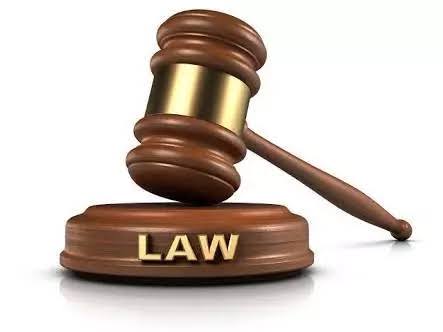
Deconstructing Nigerian Laws And Their Applications By Institutions, by Hashim Suleiman
I have always posited that since the advent of democracy in Nigeria, the country’s democratic system itself has developed over the years.
However, only discerning minds and those who are not content with handouts as dividends of democracy, can notice it, and also fathom.
So far, so good, our nascent democracy has developed to an extent where for the first time, even political pundits are finding it difficult to predict who emerge triumphant in various polls to be held next year.
As things stand, no political party can boast of sheer dominance over others, anymore. Political juggernauts in the various parties are locked in battle to capture the soul of their parties. Their high-wire intrigues revolve around how they will ensure that all the i’s are dotted, while the t’s are crossed too.
For some of us who believe nation building is a gradual matter, and comes with attendant challenges, we recognize strongly that Nigeria’s democracy is growing by the day.
And it will naturally happen amid some developmental issues, which like I said, only the critical-minded can see.
One thing about democracy is that worldwide, it fosters inclusiveness, of all segment of persons in governance process.
Yet, the bane of the societal growth and human development, most especially, is the ignorance and lack of understanding of the laws of the land.
In Nigeria, and in several parts of the world, trampling upon people’s right is a common phenomenon.
However, democracy has helped to guarantee fundamental human rights, drawn from constitutions and other legislations.
In terms of institutions and organisations who comply with the rule of law in Nigeria, the Independent National Electoral Commission, INEC, is a shining example. INEC, it must be said, do not hesitate to act on court rulings bordering on electoral matters.
Little wonder, the electoral body has continued to better the nation’s electoral fortunes as evidenced in the improvement of elections it has been conducting.
Another law that is presently been put to the test is the one on defection or cross carpeting.
By the time a final judicial pronouncement is made on the legality or otherwise of Governor Dave Umahi’s decamping to the ruling All Progressives Congress, APC, the coast would have been clear as to how to go about either amending or sustaining the constitutional clause on mandates of politicians who dump parties that won them election for another.
If not for INEC, laws on how to remove members of a party’s National Working Committee, would have been desecrated, apparently by some Governors who appear to have scores to settle with Mai Mala Buni, the Yobe State Governor and Caretaker Chairman of the APC.
The appreciation of the laws of the land in the aforementioned instances only solidify the argument that democracy, is indeed, blossoming in Nigeria, even as it will guarantee mass participation of citizens and boost public confidence in our constitutional laws.
While many folks have questioned my right to be involved in the nation’s political process despite been a public servant, the ultimate source of Nigeria’s law, which is the constitution, guarantees all and sundry freedom of association and also, participation (in politics).
It is pertinent to assert that while Nigeria’s democracy steadily matures, every necessary thing must be done by citizens to safeguard their inalienable rights, from wanton desecration.
Hashim Suleiman
[email protected]
